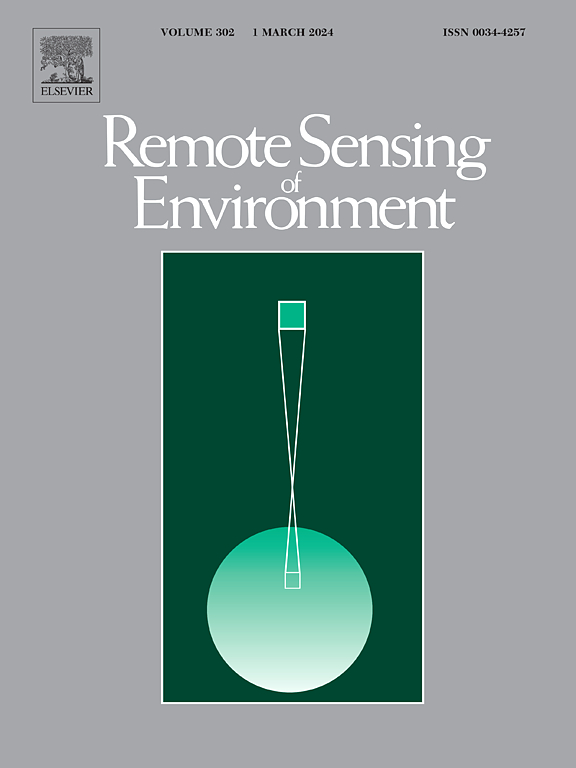Regression coefficient estimation from remote sensing maps
IF 11.4
1区 地球科学
Q1 ENVIRONMENTAL SCIENCES
引用次数: 0
Abstract
Regressions are commonly used in environmental science and economics to identify causal or associative relationships between variables. In these settings, remote sensing-derived map products increasingly serve as sources of variables, enabling estimation of effects such as the impact of conservation zones on deforestation. However, the quality of map products varies, and — because maps are outputs of complex machine learning algorithms that take in a variety of remotely sensed variables as inputs — errors are difficult to characterize. Thus, population-level estimators from such maps may be biased. In this paper, we apply prediction-powered inference (PPI) to estimate regression coefficients relating a response variable and covariates to each other. PPI is a method that estimates parameters of interest by using a small amount of randomly sampled ground truth data to correct for bias in large-scale remote sensing map products. Applying PPI across multiple remote sensing use cases in regression coefficient estimation, we find that it results in estimates that are (1) more reliable than using the map product as if it were 100% accurate and (2) have lower uncertainty than using only the ground truth sample data and ignoring the map product. Empirically, we observe effective sample size increases of up to 17-fold using PPI compared to only using ground truth data. This is the first work to estimate remote sensing regression coefficients without assumptions on the structure of map product errors. Data and code are available at https://github.com/Earth-Intelligence-Lab/uncertainty-quantification.
基于遥感地图的回归系数估计
回归通常用于环境科学和经济学,以确定变量之间的因果关系或关联关系。在这些情况下,遥感衍生的地图产品越来越多地成为变量的来源,使人们能够估计诸如保护区对森林砍伐的影响等影响。然而,地图产品的质量参差不齐,而且——因为地图是复杂的机器学习算法的输出,这些算法将各种遥感变量作为输入——错误很难表征。因此,从这类地图得出的人口水平估计值可能存在偏差。在本文中,我们应用预测驱动推理(PPI)来估计响应变量和协变量之间的回归系数。PPI是一种在大尺度遥感地图产品中,利用少量随机抽样的地面真值数据来估计感兴趣的参数,以纠正偏差的方法。将PPI应用于多个遥感用例中进行回归系数估计,我们发现它的估计结果(1)比使用100%准确的地图产品更可靠;(2)比仅使用地面真实样本数据而忽略地图产品具有更低的不确定性。根据经验,我们观察到使用PPI的有效样本量增加了17倍,而只使用地面真实数据。这是第一次在不假设地图产品误差结构的情况下估计遥感回归系数。数据和代码可在https://github.com/Earth-Intelligence-Lab/uncertainty-quantification上获得。
本文章由计算机程序翻译,如有差异,请以英文原文为准。
求助全文
约1分钟内获得全文
求助全文
来源期刊

Remote Sensing of Environment
环境科学-成像科学与照相技术
CiteScore
25.10
自引率
8.90%
发文量
455
审稿时长
53 days
期刊介绍:
Remote Sensing of Environment (RSE) serves the Earth observation community by disseminating results on the theory, science, applications, and technology that contribute to advancing the field of remote sensing. With a thoroughly interdisciplinary approach, RSE encompasses terrestrial, oceanic, and atmospheric sensing.
The journal emphasizes biophysical and quantitative approaches to remote sensing at local to global scales, covering a diverse range of applications and techniques.
RSE serves as a vital platform for the exchange of knowledge and advancements in the dynamic field of remote sensing.
 求助内容:
求助内容: 应助结果提醒方式:
应助结果提醒方式:


